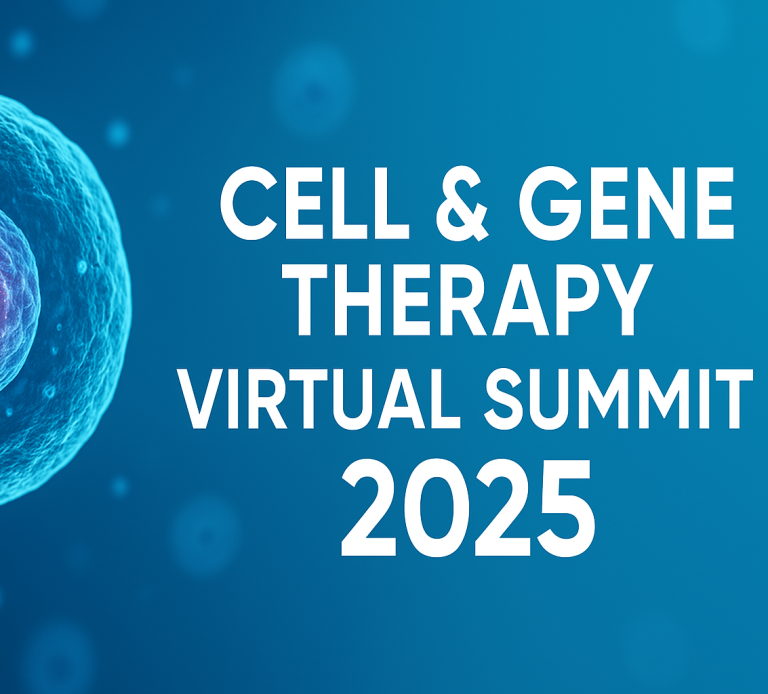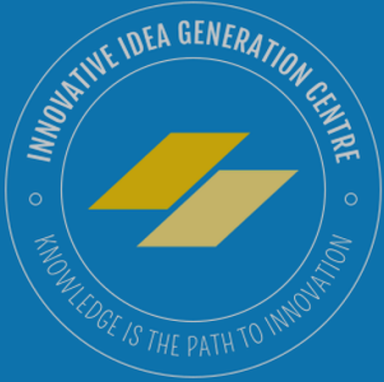
Cell & Gene Therapy Summit 2025
Advancing Gene Therapies with Smarter Vectors, Improved CRISPR Precision, and Scalable Manufacturing
Date: November 26, 2025 2025(Eastern Time) | Virtual Congress
The 2025 Cell & Gene Therapy Summit promises to be a transformative event in the field of genetic medicine, bringing together world-class experts and innovators to discuss cutting-edge advancements in gene therapies. Focused on the most pressing challenges and opportunities in this field, the summit will explore how smarter vectors, improved CRISPR precision, and scalable manufacturing are shaping the future of gene therapies. This event promises to break new ground in overcoming biological barriers, enhancing precision in delivery systems, and ensuring the sustainability of gene therapies for a broad range of therapeutic applications.
Breaking Biological Barriers: Engineering Smarter Vectors for Precision Delivery
The journey toward more effective gene therapies begins with the development of smarter delivery systems. The precision delivery of genetic payloads is a challenge that has persisted in genetic medicine, but new innovations in vector engineering are set to revolutionize this aspect of gene therapy. The summit will explore how advancements in viral and non-viral vector technologies are overcoming biological barriers to achieve targeted, efficient, and safe delivery of genetic material to specific cells and tissues.
The discussion will highlight strategies for designing next-generation vectors that are more specific, efficient, and safer. With the growing promise of gene therapies to treat a range of genetic disorders, the need for precision delivery systems is more pressing than ever. The summit will focus on tailoring delivery systems to different therapeutic areas, ranging from rare diseases to common conditions, and how these systems are bridging the gap from bench research to clinical applications.
Beyond Immunity: Reducing Host Responses and Enhancing Viral Delivery Systems
Viral gene therapy has shown great promise in treating genetic disorders. However, the success of viral vectors is often limited by the host's immune response. This session will examine cutting-edge strategies to reduce these immune responses while enhancing the delivery of genetic material. Advances in genetic modifications, viral platform design, and vector stability are enabling the creation of more efficient and safer viral vectors.
Discussions will include tissue-specific targeting techniques, controlled release mechanisms, and the ongoing clinical and preclinical trials that showcase the potential of these new technologies. As scientists work to reduce immune recognition and increase the stability of viral vectors, the therapeutic potential of gene therapies continues to expand, providing a deeper understanding of how to achieve clinical success in this area.
Advancing CRISPR-Cas9 Precision: Tackling Off-Target Effects
CRISPR-Cas9 has revolutionized gene editing, providing unprecedented precision in modifying the genome. However, off-target effects remain a critical challenge that impacts the safety and efficacy of therapeutic applications. This session will dive deep into strategies for minimizing these off-target effects through novel Cas9 variants, improved computational algorithms, and refined gene-editing techniques.
Experts will explore the importance of improving CRISPR’s specificity, including new variants of Cas9 that offer enhanced accuracy and reduced risk of unintended genetic modifications. The potential of these advancements in both therapeutic and agricultural applications will be a key theme, as CRISPR continues to evolve into a more precise tool for genetic engineering.
Engineering the Cure: Navigating Manufacturing Precision in Ex Vivo vs. In Vivo Therapies
The summit will address the different challenges faced by ex vivo and in vivo gene therapies. Ex vivo therapies, which involve genetic modifications of cells outside the body before reintroduction, face challenges in maintaining consistency in cell engineering and scaling up production. In contrast, in vivo therapies, which directly target the patient’s cells, require overcoming delivery barriers within the complex biological environment of the body.
This session will focus on the innovations needed for scalable production, advanced vector design, and more effective targeted delivery strategies. Experts will discuss the engineering obstacles in personalized and regenerative medicine, highlighting the importance of overcoming these challenges to create sustainable, effective gene therapies that can be delivered to patients in a consistent and safe manner.
Overcoming Variability: Scalable Manufacturing for Cell-Based Therapies
One of the major hurdles in advancing cell-based therapies is the challenge of scaling up production while ensuring consistent quality across batches. Variability in product quality can compromise both efficacy and safety. This session will delve into innovative manufacturing strategies that enhance scalability while maintaining rigorous quality control standards.
The discussion will focus on overcoming challenges related to standardization, cost-efficiency, and regulatory compliance. As the demand for advanced therapeutic products grows, it is crucial to find solutions that balance affordability with the high-quality standards required in the development of these therapies.
Innovations in Treatment Durability: Prolonged Response Without Re-Administration
A key promise of cell and gene therapies is their potential to provide long-lasting or even curative treatments. However, the durability of these therapies remains a critical concern, particularly as many gene therapies currently require repeated administrations to maintain their effects. This panel discussion will explore how to overcome these challenges and enhance the durability of gene therapies, thus reducing the need for frequent re-administration.
Presenters will discuss innovative approaches such as advanced vector designs, immunomodulation techniques, and regenerative medicine strategies that are paving the way for longer-lasting therapeutic responses. By addressing these challenges, gene therapies can move closer to providing truly transformative, lifelong treatments for patients.
Clinical & Regulatory Challenges: Innovations in Clinical Trials and Regulatory Pathways
Cell and gene therapies face numerous clinical and regulatory challenges, from optimizing patient eligibility to ensuring HLA matching and navigating complex trial designs for rare disease populations. This session will provide an in-depth examination of the clinical challenges in cell and gene therapies, particularly in ensuring patient eligibility, defining endpoints in small patient cohorts, and overcoming immune responses.
The regulatory landscape for gene therapies continues to evolve, and the summit will explore strategies for navigating regulatory uncertainties, as well as the latest advancements in biomarker development to improve diagnosis, monitoring, and efficacy measurement. The panel will also address the challenges of long-term follow-up in gene therapy, particularly the need for lifelong safety and efficacy monitoring.
Reimbursement Models: Addressing the High Cost and Ensuring Global Access
As cell and gene therapies become more mainstream, the rising cost of these treatments poses significant challenges to both patients and healthcare systems. This session will explore innovative reimbursement models aimed at improving affordability, particularly for rare diseases, and discuss strategies for ensuring global access to these therapies.
The high cost of developing and delivering cell and gene therapies has created a financial barrier for many patients. Reimbursement models, such as pay-for-performance and outcome-based pricing, offer potential solutions to address these challenges and ensure broader access to life-saving treatments. The summit will explore the strategies that are being implemented to improve affordability and access, particularly in low-resource settings.
The 2025 Cell & Gene Therapy Summit will be a landmark event that brings together leading experts to discuss the future of gene therapies. The focus on smarter vectors, improved CRISPR precision, and scalable manufacturing reflects the cutting-edge nature of the field, and attendees will leave with a deeper understanding of the challenges and opportunities ahead. As the science of gene therapy continues to evolve, the summit will showcase the advancements needed to move from breakthrough research to transformative clinical applications that can revolutionize the treatment of genetic and acquired disorders.
©Copyright. All rights reserved.
We need your consent to load the translations
We use a third-party service to translate the website content that may collect data about your activity. Please review the details in the privacy policy and accept the service to view the translations.
